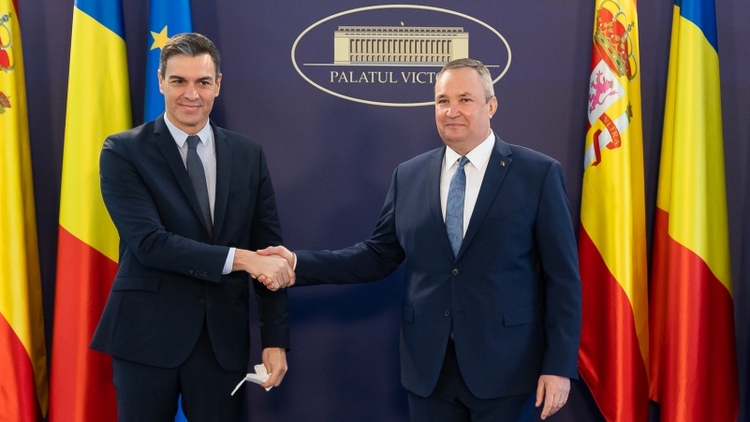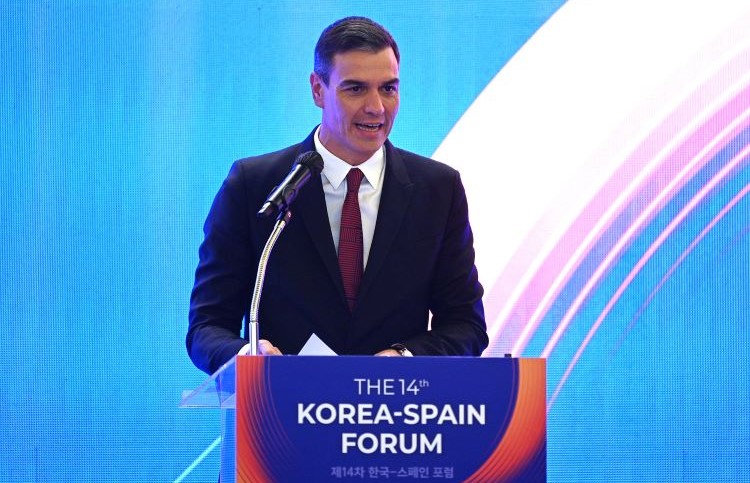The Diplomat
Spain and Romania will hold their first bilateral summit in Castellón de la Plana on Wednesday 23rd, with the heads of government, Pedro Sánchez and Nicolae Ciucă, and fourteen Spanish and Romanian ministers in attendance.
The two countries have been trying to hold this summit for years, shortly after the bilateral Strategic Partnership Agreement was signed in 2013, but various circumstances, including the Covid-19 pandemic, prevented the moment from coming to fruition. In March of this year, Sánchez visited Bucharest to meet with Ciucă, and now, Romania joins the European Union countries with which Spain holds these high-level meetings, such as Germany, France, Italy, Portugal and Poland.
The summit will take place in Castellón de la Plana and the heads of government will be joined by the Spanish ministers of Foreign Affairs, Interior, Defence, Labour, Agriculture, Territorial Policy and Health, as well as the corresponding Romanian heads of these areas. Memoranda of understanding are expected to be signed in areas such as foreign policy, culture, health, labour and social protection, agriculture and civil protection.
The meeting will take place at a time when one of Romania’s aspirations to join the Schengen Area of free movement in the European Union appears to be close to being fulfilled. In fact, the EU’s Justice and Home Affairs Council is expected to give the green light to Romania, Bulgaria and Croatia to join the border-free Europe on 8 December.
This will not, therefore, be an issue to which much time will be devoted at the summit, as Spain has already expressed its support for Schengen membership, as well as for Romania’s accession to the OECD, a process that is still underway.
A more sensitive issue in the bilateral relationship is Romania’s desire to reach an agreement with Spain on dual nationality, which could benefit the one million Romanians living in our country. The Romanian government stresses the deep roots of Romanian citizens in Spain – where an estimated 100,000 of them were born – and wants them to be able to enjoy the advantages of Spanish nationality.
The Spanish government has not closed its mind to the possibility, but argues that it must study the request carefully, because until now dual nationality has been reserved for Latin American countries, as well as those that have had special ties with Spain, such as Equatorial Guinea and the Philippines. Spain recently signed a dual nationality agreement with France.
On the other hand, relations between Spain and Romania have grown considerably in various fields, including Defence, because the Spanish Armed Forces have participated or are participating in operations to reinforce the eastern flank of the Atlantic Alliance, such as the one carried out in February and March 2021, with a detachment of 130 military personnel and six Eurofighter Typhoon fighters, in joint Enhanced Air Policing missions with the Romanian Air Force, carried out under NATO command at the Mihail Kogălniceanu Air Base.
In addition, eight F18M air force fighters are scheduled to start operating on 1 December at the Romanian Air Tactical Detachment, which will be based at the Fetesi base on the Danube, 300 kilometres from Odessa and 400 kilometres from Kherson in Ukraine. Its deployment will involve a further 130 military personnel, pilots and support staff for the F18 fighters of the 15th Wing at the Zaragoza base.
On the economic front, trade relations between Romania and Spain have been on a steady upward trend since 1990, and, at the end of the first quarter of 2022, the volume of bilateral trade stood at €1.5 billion, an increase of 30% compared to the same period in 2021. Spanish investments in Romania reached €1.78 billion in 2021, with 6,375 companies with Spanish capital participation.







